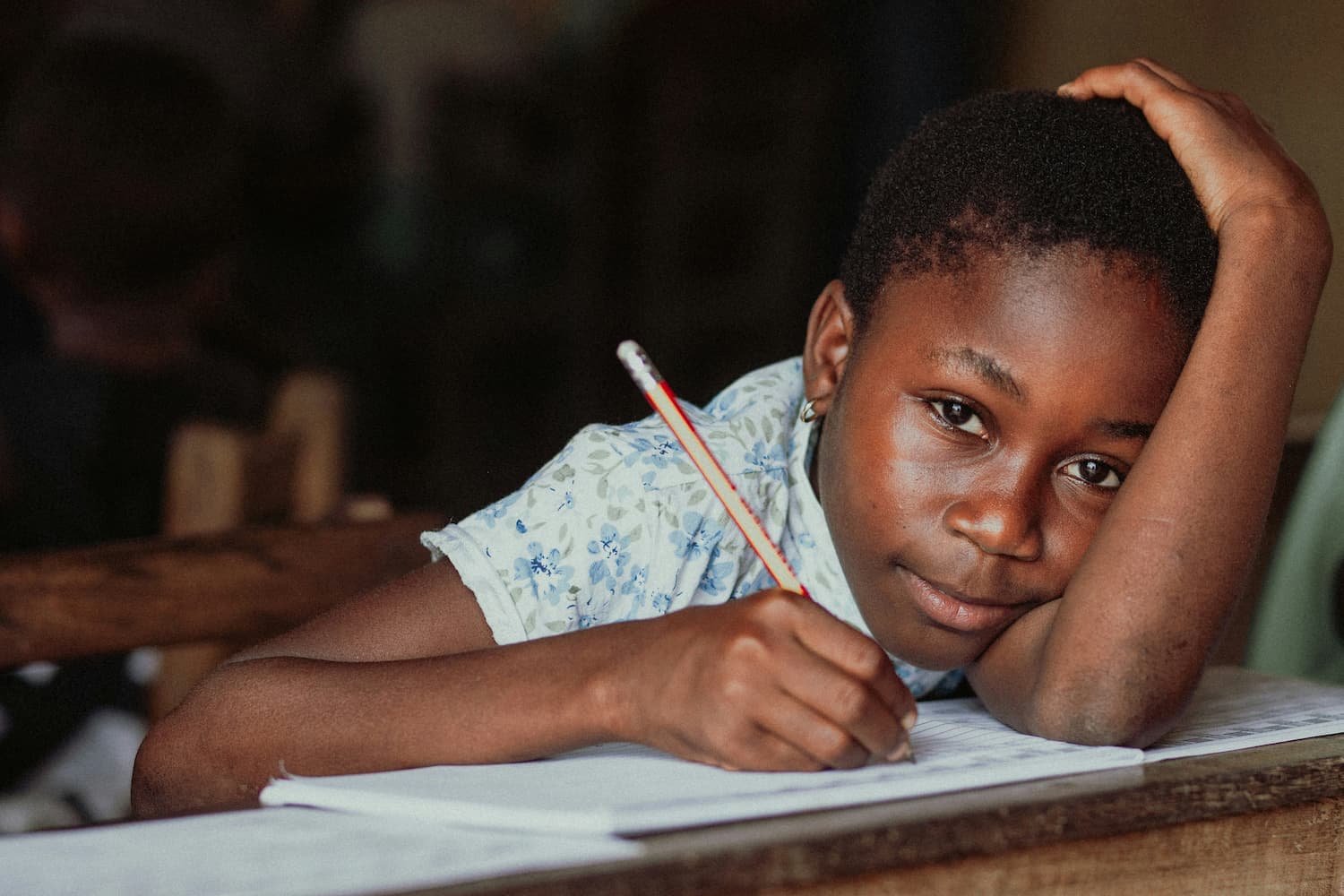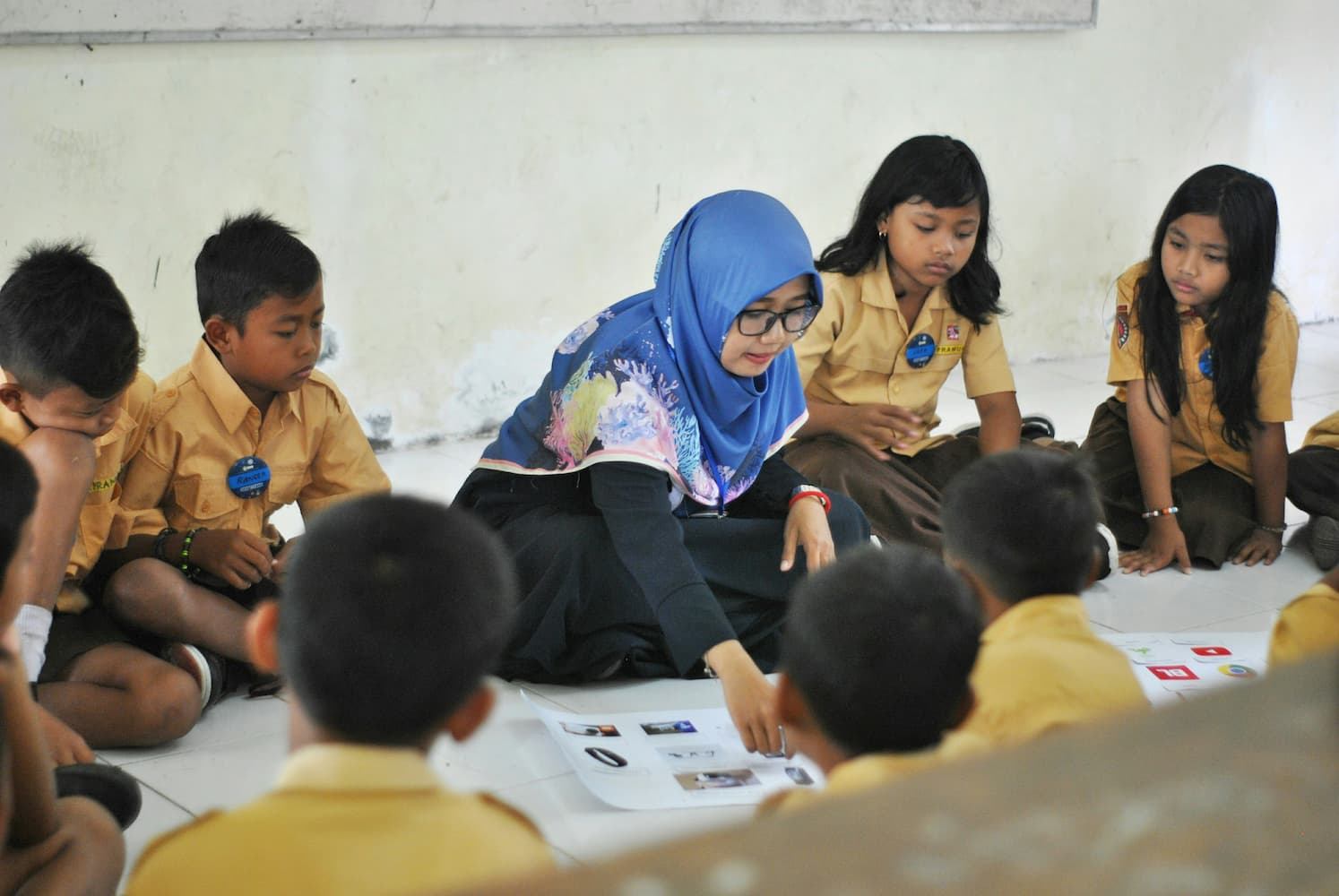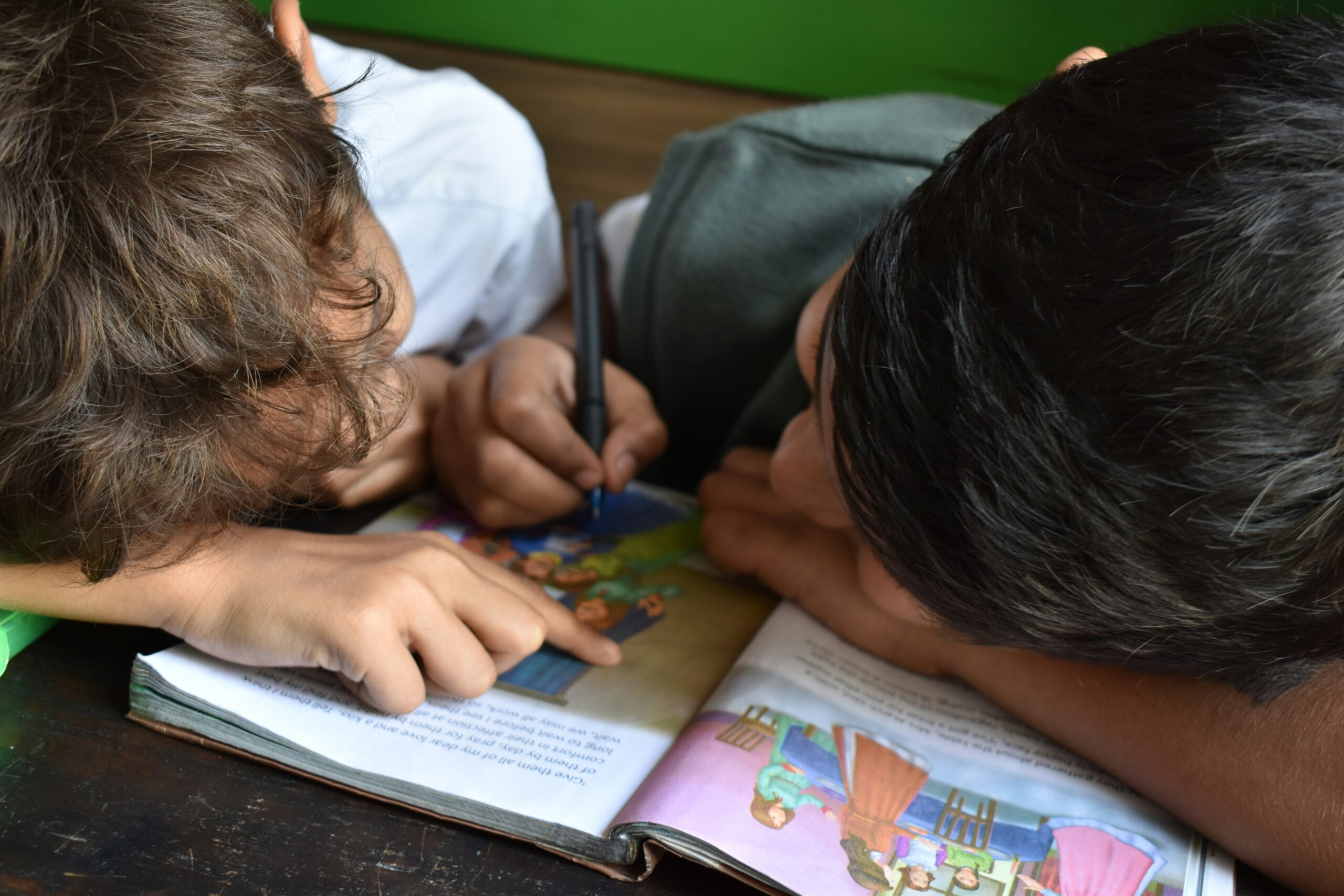Blog
Pakistan bets on evidence to transform learning: a conversation with Sam Wilson at EWF 2025
Pilar Guerrero
On 21 May in London, leaders from over 100 countries came together for the Education World Forum (EWF), the world’s most important event on education policy, to explore and discuss the future of education amid technological transformation, equity challenges and post-pandemic recovery.
Among policymakers and education experts, we had the opportunity to speak with Sam Wilson, Director of the Pakistan Foundational Learning Hub, a unit integrated within the Ministry of Federal Education and Professional Training of the Government of Pakistan. The Pakistan Foundational Learning Hub was established in September 2023 with the mission to improve foundational literacy and numeracy outcomes nationwide. This initiative is supported by the UK’s Foreign, Commonwealth and Development Office and the World Bank.
From evaluation to policymaking
In his role, Sam leads a team that seeks to build bridges between research and public policy, particularly in the critical area of foundational learning. ‘Our structure combines a research team and a policy team, and we see ourselves as a connector between evidence and decision-makers, both at the federal level and across the country’s five provinces,’ he explained.
One of the hub’s main contributions has been conducting the first national analysis of the foundational learning landscape in Pakistan, a study that gathered both local and global evidence on the challenges the country faces in this key area. This work has been complemented by evaluations of specific programmes, such as the pilot Reading Hour, a federal initiative focused on one hour of daily reading in Islamabad, as well as the mapping of high-quality teaching and learning materials available throughout the country.
But perhaps most relevant is how this research has begun to directly influence public policy. ‘Just a week ago, our study was directly cited in the implementation plans of the foundational learning programme sent to all schools in Islamabad,’ Sam noted. In addition, part of the hub’s work has contributed to drafting of the new federal foundational learning policy and the national education policy. It has also influenced provincial policies in places like Sindh and Punjab.
Ecosystem that drives change
The impact is not limited to policy design: the hub actively works with schools and teachers. For example, in its evaluation of 100 early childhood education centres in Islamabad (forthcoming), the team is conducting classroom observations that are then shared directly with programme managers. ‘Sitting down with the project director and saying: “these are concrete actions you can take tomorrow to improve early childhood education” is an essential part of our approach,’ Sam explained.
Beyond a one-off report, the work of the Pakistan Foundational Learning Hub aims to generate systemic change. For Sam, the key lies in helping to coordinate an ecosystem of actors such as government, development partners and researchers who share a common narrative based on evidence. ‘It’s not just about influencing specific programmes but building a shared vision on how to improve learning in Pakistan,’ he concluded.
Why embedding research matters
The Pakistan Foundational Learning Hub is part of a wider movement of ‘embedded evidence labs’ within education ministries. What becomes clear is the value of initiatives like this, where research is embedded in the government, so translating it into concrete policy recommendations is easier. This embeddedness ensures that findings don’t remain confined to academic circles but truly reach classrooms, teachers and students. In a global context where education faces urgent and complex challenges, it is precisely this articulation and union between evidence and action that can make a difference.
Guerrero, P. 2025. Pakistan bets on evidence to transform learning: a conversation with Sam Wilson at EWF 2025. Works Hub for Global Education. Blog. 2025/018. https://doi.org/10.35489/BSG-WhatWorksHubforGlobalEducation-BL_2025/018
Discover more

What we do
Our work will directly affect up to 3 million children, and reach up to 17 million more through its influence.

Who we are
A group of strategic partners, consortium partners, researchers, policymakers, practitioners and professionals working together.

Get involved
Share our goal of literacy, numeracy and other key skills for all children? Follow us, work with us or join us at an event.
